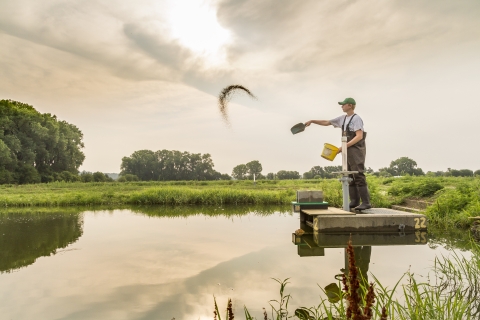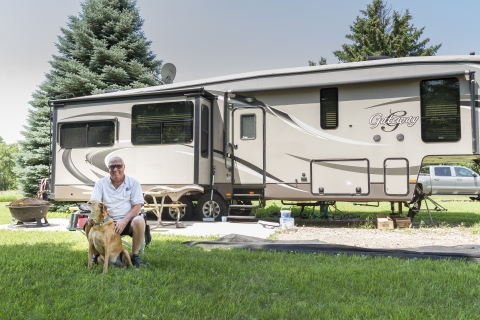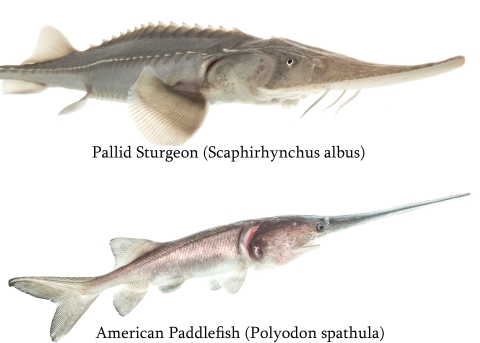Visit Us
Come see what we're up to. Our outdoor facilities are open 7-days per week all year - enjoy a peaceful walk around our rearing ponds. Two indoor facilities (our aquarium and main hatchery building) are open with seasonal hours.
Aquarium: Open 10:00-3:00 M-F in April and September and 10:00-5:00 May 1 through Labor Day.
Hatchery Building: Open 7:00-3:00 M-F and most summer weekends.
Location and Contact Information
- Gavins Point National Fish HatcheryView Details31227 436th Avenue Yankton, SD 57078-6364
Tours
We host 60+ fieldtrip groups annually - anything from pre-schools, to university classes, to retirement homes. Typically field trip groups are led into several of our buildings that are closed to the public. Sometimes kids get a chance to touch a fish or other critters that call the hatchery home. Groups typically visit our aquarium before or after their hatchery tour.
Small-group summer tours are occasionally available, but must be scheduled well in advance (at least two working-days).
All tour scheduling is handled via email. Contact us at gavinspoint@fws.gov for more info.
Our Species
In a normal year we will work with numerous fish species including: Pallid sturgeon, American paddlefish, bluegill, redear sunfish, black crappie, smallmouth bass, largemouth bass, yellow perch, walleye, rainbow trout, flathead chubs and Kendall Warm Springs Dace.
Get Involved
If you'd like to volunteer at our facility please contact us. We typically host two sets of seasonal volunteers that live in their own campers on our grounds for the summer. They help us out part time and enjoy the area with their free time.
We also often need a little volunteer help with our annual Kids' Fishing Derby - donated fishing tackle is always appreciated as well. Contact us about either.
Also, consider joining our Friends Group to get more involved.
Projects and Research
Gavins Point specializes in producing pallid sturgeon (an endangered species) and American paddlefish – both of which are stocked into the Missouri River. A variety of more common sportfish (e.g., walleye, bluegill, black crappie) are also produced annually as well as some experimental species.

























